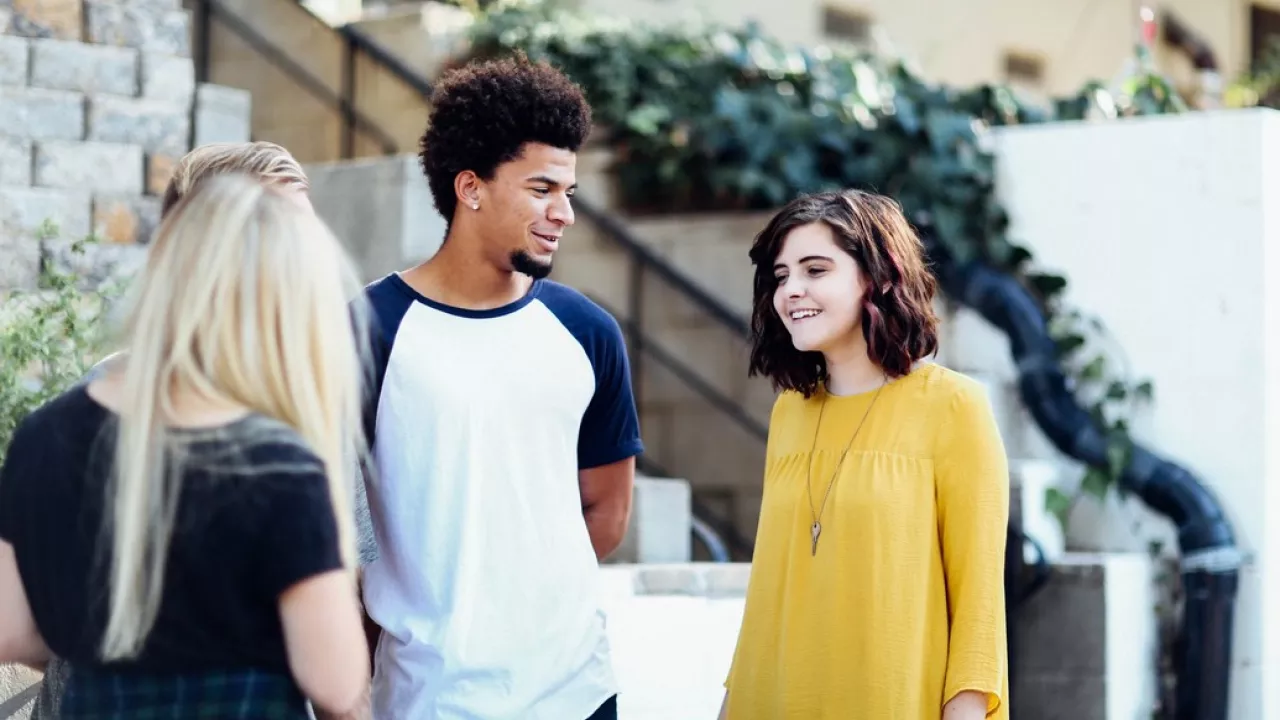News
News
High Flyers
23 April 2024Internships offered at London City Airport, as Diversity of Thought partnership with UEL is strengthened.

Elevate Festival returns
23 April 2024ELEVATE festival will showcase the cutting-edge innovation of students from the University of East London's School of Arts and Creative Industries.

UEL hosts Stephen Lawrence Day Conference
23 April 2024The University of East London recently hosted the Stephen Lawrence Day Conference, commemorating the 31st anniversary of Stephen Lawrence's tragic

Fighting the Right
22 April 2024Leading anti-racism campaigner to speak at UEL about his four decades battling the far-right.

Celebrate Sustainable East London in style
19 April 2024Sustainable Cities Festival ends with a day of eco-conscious activities and community engagement.

LinkedIn Live - Smart Cities
12 April 2024Join us for a discussion as part of the Sustainable Cities Festival.

UEL nominated for prestigious SABRE Award
10 April 2024UEL nominated for top PR award for Royal Docks Summer Festival triumph.

UEL Festival gets nomination nod for coveted awards
10 April 2024Royal Docks Festival recognised for its innovative approach and impact on the University community and beyond.

UEL expands global reach with Egyptian partnership.
09 April 2024UEL broadens its influence with strategic collaborations in Egypt.

Engineering a greener future
05 April 2024UEL event illustrated how engineering can play a vital role in addressing crucial environmental challenges.

UEL manager nominated for Forbes 30 Under 30
05 April 2024University of East London sustainability manager shortlisted for Forbes 30 Under 30 Europe.

Time for tea – and art
04 April 2024Film by UEL lecturer shown at conference examining imperial connections of tea.

UEL student wins prestigious scholarship
03 April 2024Aeronautical engineering undergraduate rewarded for his “hard work and passion.”

Pharma students take up the challenge
02 April 2024Pharmacology students from three universities gather to play University Challenge and present their work in a showcase of knowledge and excellence.

Student set for marathon challenge
02 April 2024Psychology student Sam Miles will take part in London Marathon in memory of his sister.

Bringing bumblebees back to Bexley
02 April 2024Sustainability Research Institute involved in project to build pollinator corridor for bees in south-east London.

UEL shortlisted for five London Higher Awards
28 March 2024University recognised across multiple sectors in leading higher education awards.

Visual Arts artists explore detours and directions
27 March 2024The Visual Arts cluster hosted their annual Detour Ahead symposium.

Office of US President recognises UEL research
26 March 2024UEL Professor’s research has been cited in an influential White House economic report.

UEL art students secure prestigious internships
26 March 2024Students get insights into life at a leading advertising agency and the production workshop of the Royal Opera House.

History
Recently clicked results
Your click history is empty.
Recent searches
Your search history is empty.
